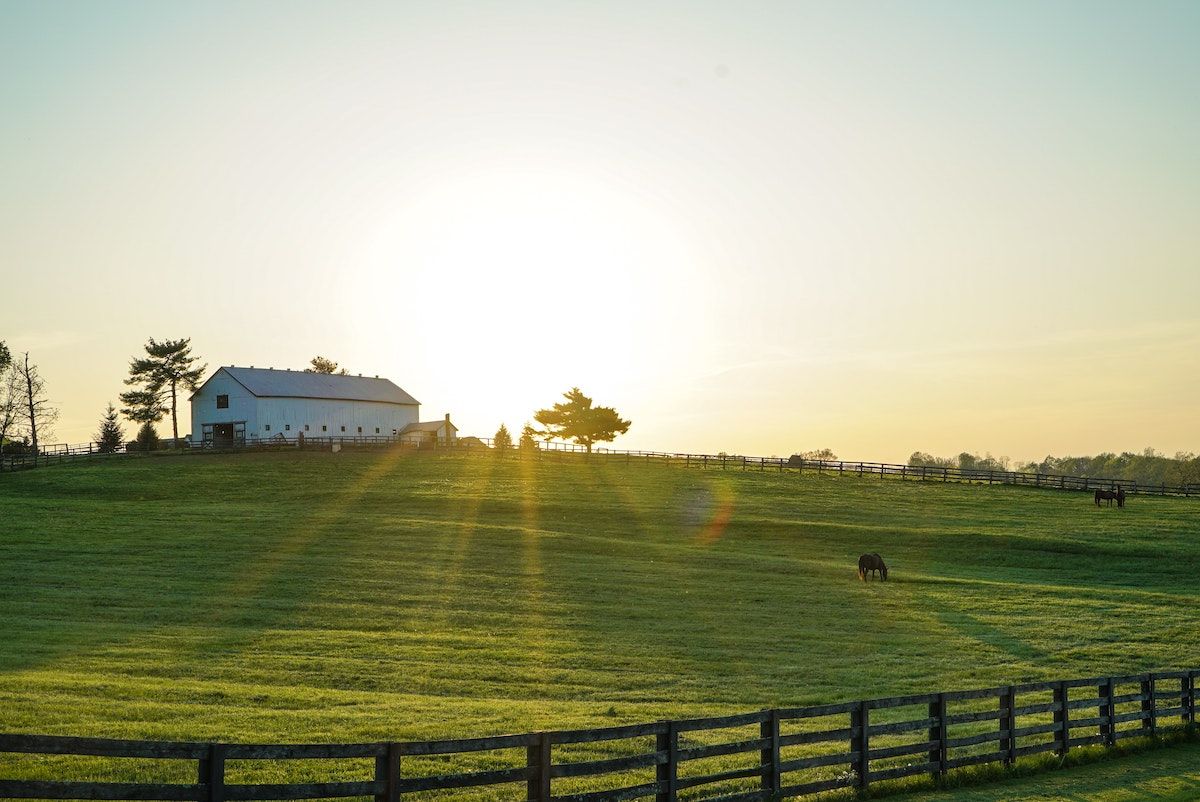Somethin' Magic
My first assignment as a Working Student when I came down the stairs from the above-the-barn apartment, dressed in breeches and boots and ready to ride, was to go catch a mare named Somethn' Magic - just Magic for short - from the pasture.

My first assignment as a Working Student when I came down the stairs from the above-the-barn apartment, dressed in breeches and boots and ready to ride, was to go catch a mare named Somethin' Magic - just Magic for short - from the pasture.
"And honestly, good luck with that. She is really hard to catch," Billie chuckled from behind the cross tie as she groomed her first mount of the day.
The facility was nothing to write home about, but she had some impeccable Off-the-Track-Thoroughbred prospects and some of the largest turnouts on plush, green Virginia grass that I had ever set eyes on.
What I came to learn early on in my Working Student days was that horse trainers love to test you, and most of the time they don't tell you you're being tested. I made my way to the turnout tucked behind the covered red clay arena where three mares were grazing: one big black mare, Magic, a moderately sized white mare and a chunky pony.
As I unlached the green gate, the white mare and the pony scattered. To my surprise, Magic stood motionless, eyes locked on me, waiting. I paused, thinking to myself that this might be some sort of trick of hers. We both stood a few hundred feet from one another, without movement, for a few moments.
When she didn't make a move, I decided she must have been waiting on me to make mine.
I slowly began to walk toward her, halter and leadrope hanging from my right hand, expecting her to run off and join the two others - but she didn't. As I drew closer, I slowed my steps even further, totally convinced that this was going south at any time now.
But once I got within five feet of her, and she still hadn't moved, I decided that Billie was trying to play tricks on me.
In life and in horses, sometimes just telling someone what to expect is enough for them to create self-fulfilling prophecy.
Normally at this point, I would reach my hand out to touch the horses neck for a pat, but for whatever reason I felt compelled to open and offer the halter to her. To my merriment, she lowered her head right into the halter and allowed me to clip it underneath her cheekbones. She walked right alongside me, out the gate, and into the barn.
"You've got to be kidding me," said Billie at the sight of us. "I don't think you understand - no one can catch that horse."
I smiled, shrugged, and tried to hide how proud of myself I was. If this was a test - I passed with flying colors.
"Alright, well, let's see what happens when you get on her," she said. I could tell by her tone that she was expecting a hard ride.
Once we had both tacked up and gotten on in the red clay covered arena, she began to talk me through how to ride the mare: loopy reins, stay out of her face, don't use too much leg. Off-the-Track-Thoroughbreds (OTTBs) are trained the opposite as hunters and jumpers - they are taught to go faster when you pull on the reins not slow down.
At first, it was a bit of an adjustment, having been taught to use firm contact to keep horses in a frame. After a few minutes of flatwork, Magic began to relax her back and start to reach her nose down. She had a floaty, smooth trot that I absolutely adored.
Given her greenness, that first ride we didn't even canter. Normally, my ego would have gotten the best of me, but Billie explained that it's an approach that has worked well for her.
"Don't canter any horse before you can master the trot. These horses were trained to go fast, they know fast, but they don't know slow. Go slow. And remember: a trot workout is harder than a canter workout. Trotting gets horses fit better and faster than cantering does."
After what felt like the hardest 20-minute riding workout of my life, I was pretty convinced Billie knew what she was talking about.
"I've never seen that mare so quiet with anyone before," she explained after I had dismounted.
"Really?" I asked with suspicion, half-thinking she was just joking.
"Seriously. You have been able to connect with her in a way no one else has. It was cool to watch."
Years later, I searched for her on the internet and was never able to find her. She was sixteen at the time with an owner who stopped paying board. I don't like to think about what actually happened to her, but I like to tell myself she retired fat and happy in the rolling hills of Virginia just down the road from the Virginia Horse Center.
To this day my heart aches thinking I left a mare behind that belonged with me, but I have to remind myself to smile at the moments where we found each other and be grateful it ever happened in the first place.